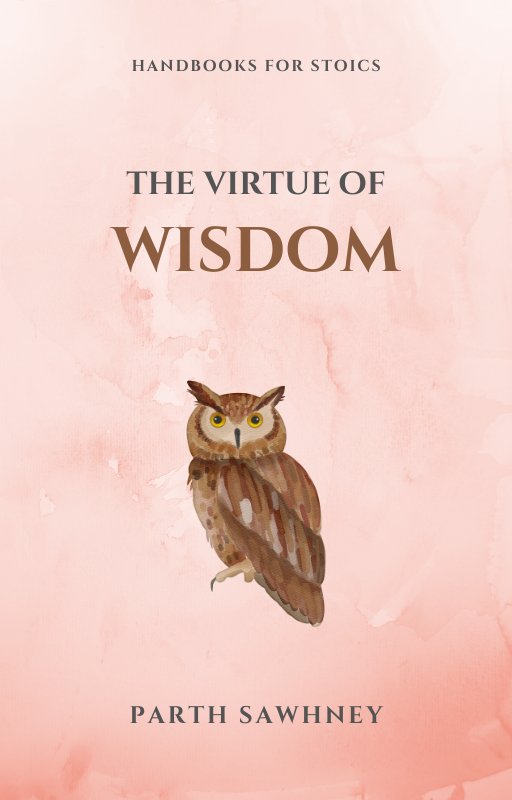the eternal student: a meaningful lesson from marcus aurelius

“Live as if you were to die tomorrow. Learn as if you were to live forever.”
— Mahatma Gandhi
Picture the most powerful man in the world hurrying through palace corridors, arms laden with books. This was no imagined scene, but rather a real moment from the life of Roman Emperor Marcus Aurelius. When a surprised friend encountered him and asked where he was headed, Marcus's answer was simple yet profound: he was off to attend a philosophy lecture, explaining that "learning is a good thing, even for one who is growing old. From Sextus the philosopher I shall learn what I do not yet know."
This snapshot captures a fundamental truth about wisdom: true greatness lies not in believing we have attained it, but in the perpetual pursuit of it. Here was Marcus Aurelius, emperor of Rome, master of the known world, still considering himself a student. In his personal writings, the Meditations, he acknowledges no fewer than seven philosophy teachers, including rivals to his own Stoic school. He even specifically thanks his teacher Rusticus for introducing him to Epictetus's lectures and sharing his personal copy of the texts.
This humility before knowledge wasn't unique to Marcus. Throughout Stoic philosophy, we find a consistent thread: the recognition that genuine wisdom begins with acknowledging how much we have yet to learn. Epictetus, himself a renowned teacher, observed that it is impossible for anyone to learn what they believe they already know. This insight cuts to the heart of why continuous learning is so vital – not just as a practice, but as a mindset. The moment we consider ourselves complete in our knowledge is the moment we cease to grow.
Seneca, another pillar of Stoic thought, put it even more bluntly: there is no one more foolish than one who stops learning. Even at the height of mastery, he insisted, one should continue learning until life's end. But Seneca's most compelling argument for lifelong learning lies in its unique nature among life's pursuits. While fortune may grant or deny us wealth, status, or power, the pursuit of wisdom remains forever within our control. Unlike other assets that can be lost to circumstance, knowledge, once gained, becomes an inalienable part of who we are.
“‘How much progress shall I make?’ you ask. Just as much as you try to make. Why do you wait? Wisdom comes haphazard to no man.”
— Seneca
The lesson these ancient thinkers impart transcends their time and speaks directly to ours. In an age of instant information and quick answers, their example reminds us that true learning requires humility, dedication, and the recognition that we are never finished students. Whether we're beginning our philosophical journey or have walked its paths for years, there is always more to discover, always another lecture to attend, always another book to open.
Marcus Aurelius, carrying his books through the palace, shows us that no one is too important, too accomplished, or too old to learn. In fact, it is precisely this willingness to remain a student that marks the truly wise. Every day offers us the same choice he made: to assume we know enough, or to embrace the role of the eternal student, ready to learn what we do not yet know.
I’m so happy and grateful to announce the release of my new short-form eBook “The Virtue of Wisdom”.

In “The Virtue of Wisdom”, the fourth volume of the transformative “Handbooks for Stoics” series, Parth Sawhney guides readers on an insightful journey into Stoicism’s most revered virtue: wisdom. Building on the timeless teachings of ancient philosophers, this book explores the true essence of practical wisdom and knowledge as a foundation for a well-lived life.
Wisdom is not just the pursuit of intellectual understanding but the art of applying knowledge to make choices that align with virtue, purpose, and resilience. Drawing from the insights of Seneca, Epictetus, and Marcus Aurelius, Sawhney lays out a clear, actionable path for cultivating a Stoic mindset—enabling readers to navigate life’s challenges with discernment, clarity, and strength.
Sawhney masterfully bridges the gap between theoretical wisdom and daily practice, offering readers a comprehensive guide to developing phronesis—the practical wisdom that enables sound judgment in an increasingly complex world.
Packed with powerful reflections and practical exercises, “The Virtue of Wisdom” is a profound guide to developing the inner fortitude to thrive amidst uncertainty. Perfect for both seasoned Stoics and newcomers, this volume reveals how to embody wisdom in every aspect of life, making it an invaluable resource for anyone seeking to live with greater purpose and clarity.
Embrace the journey to practical wisdom with “The Virtue of Wisdom”, and take a transformative step toward true Stoic mastery.
Get your copy today! Learn more here.


